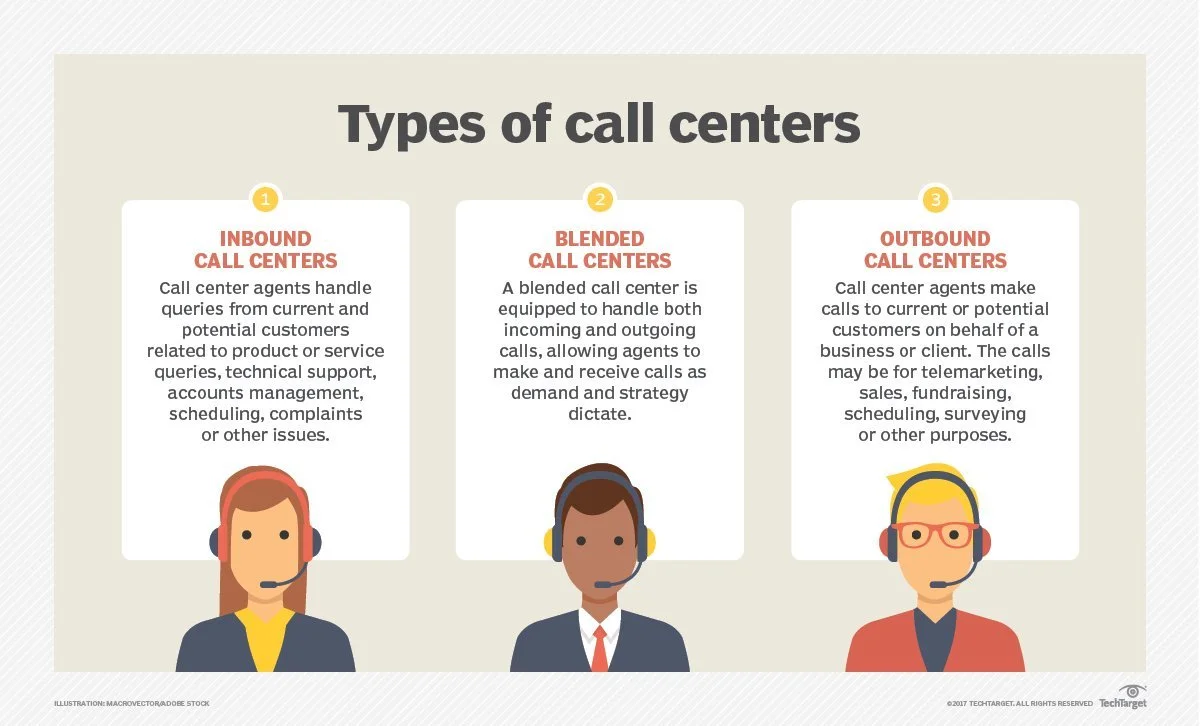What is a Call Center? Everything You Need to Know
What is a call center?
A call center is a centralized department that handles inbound and outbound calls from current and potential customers. Call centers are located either within an organization or outsourced to another company that specializes in handling calls.
What is the difference between a call center and a contact center?
Call centers focus on one communication channel: the telephone.Contact centers provide support from additional channels, such as email, chat, websites and applications. A contact center may include one or more call centers.
Contact centers provide omnichannel support, assisting customers on whichever channel or device they use. Whether an organization chooses a call center or contact center depends on its products and services, the channels on which it provides customer support and the structures of the organization's support teams.
How do call centers work?
Online merchants, telemarketing companies, help desks, mail-order organizations, polling services, charities and any large organization that uses the telephone to sell products or offer services use call centers. These organizations also use call centers to enhance CX.
The three most common types of call centers are inbound, outbound and blended call centers.
Inbound call center. Typically, these call centers handle a considerable volume of calls simultaneously and then screen, forward and log the calls. An interactive voice response (IVR) system can answer calls and use speech recognition technology to address customer queries with an automated message or route calls to the appropriate call center agents or recipients through an automated call distributor (ACD).
Agents in an inbound call center may handle calls from current or potential customers regarding accounts management, scheduling, technical support, complaints, queries about products or services, or intent to purchase from the organization.
Outbound call center. In these call centers, an agent makes calls on behalf of the organization or client for tasks, including lead generation, telemarketing, customer retention, fundraising, surveying, collecting debts or scheduling appointments. To maximize efficiencies, an automated dialer can make the calls and then transfer them to an available agent using an IVR system after the caller connects. Outbound call centers must ensure compliance with the National Do Not Call Registry, a list to which citizens can add their phone numbers to avoid unwanted solicitation calls.
Blended call center. This type of call center handles both inbound and outbound calls.
Importance of call centers
Customers have high expectations for customer service. They want their issues addressed and handled quickly and efficiently. Organizations must have representatives available when customers call for service or support, and those with call centers can more effectively assist customers in need. Call centers can make an organization available 24/7 or during a time window that matches customer expectations.
Customer phone calls have value beyond customer service. With some products or services, phone calls are the only interactions organizations have with customers -- therefore, the only opportunity to personally connect with customers.
Source: https://www.techtarget.com/searchcustomerexperience/definition/Call-Center
